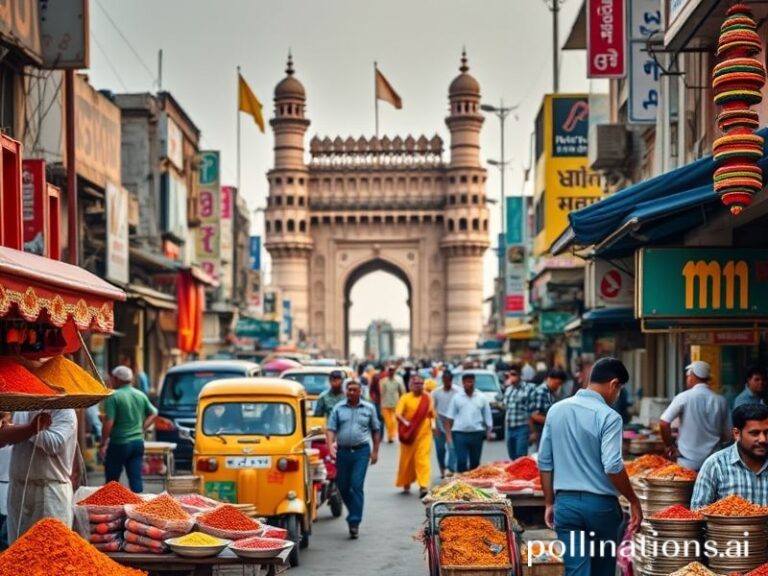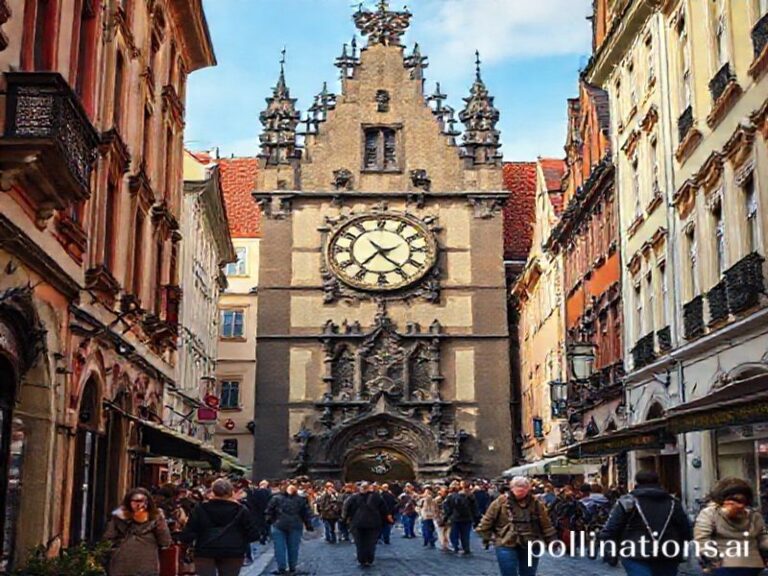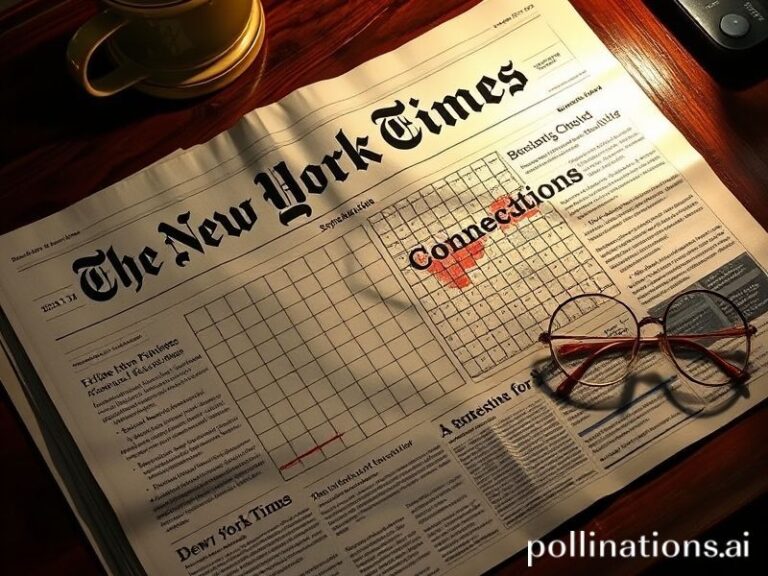How the World’s Most Notorious Mustache Still Gets Through Customs: The Global Afterlife of Adolf Hitler
The Ghost in Every Passport: How a Failed Austrian Watercolorist Still Stamps the World’s Visas
By the time you finish this sentence, roughly three new documentaries, two TikTok conspiracy threads, and one unfortunate mustache will have invoked Adolf Hitler. Not bad for a man who couldn’t even get into art school. Yet eighty years after he traded a Berlin bunker for a permanent suite six feet closer to hell, his aftershave—equal parts fear, fascination, and Fanta-colored nationalism—still lingers in every airport security line from Lagos to LAX. International law has spent the better part of a century trying to launder the stench out, but the fabric of global politics remains stubbornly stained.
Consider the United Nations, that glittering tower of multilingual good intentions on the East River. It was essentially founded as a collective “never again” group chat after the original group chat, the League of Nations, ghosted everyone in 1939. Today, when Russia cites “denazification” to justify pulverizing Ukrainian cities, or when Israeli diplomats flash yellow stars at the General Assembly, they’re not just trading historical insults—they’re proving Godwin’s Law has a passport and frequent-flyer status. The word “genocide” itself was minted in 1944 by Raphael Lemkin, a Polish-Jewish lawyer who apparently decided that “mass murder so large it needs its own press release” required snappier branding. One man’s megalomania thus enriched the diplomatic dictionary forever; even corporate HR now speaks of “micro-genocides” when Karen from accounting steals the last donut.
Travel further south and the plot thickens like Bavarian gravy. In Brazil, President Bolsonaro’s supporters once projected Hitler’s image onto a São Paulo skyscraper to “own the libs,” apparently confusing shock value with political strategy. Meanwhile, in India, fringe Hindu nationalists have been spotted sporting swastika-emblazoned hoodies, blissfully ignoring that the symbol once denoted good luck long before the failed painter repurposed it as a logo for world-class unpleasantness. Globalization, it seems, allows every culture to misinterpret history at broadband speed.
Then there’s the economy, forever the diligent student of catastrophe. The Marshall Plan—history’s most expensive “sorry we were late” bouquet—rebuilt Europe with American cash partly to ensure no one else flirted with fascism when the fridge was empty. Today, the European Union’s single market owes its neurotic obsession with fiscal discipline to nightmares of Weimar wheelbarrows full of worthless marks. Ironically, Germany now lectures Greece on debt morality, a reversal so deliciously ironic it could headline in Der Sturm.
Asia, never one to miss a historical remix, offers its own covers. Japan’s wartime alliance with Nazi Germany remains a touchy karaoke track—sing it too loudly in Seoul or Manila and the mic might explode. China, currently perfecting the art of the concentration camp reboot in Xinjiang, insists it learned nothing from the 20th century except that global supply chains are surprisingly forgiving. Even North Korea’s Kim dynasty borrowed the fascist playbook’s chapter on personality cults, though they swapped Hugo Boss for something closer to Soviet leisurewear.
And let us not forget the digital afterlife. Algorithms designed to maximize “engagement” have discovered that nothing spikes clicks quite like a toothbrush mustache. Every time a teenage edgelord posts “Hitler did nothing wrong” on a gaming forum, a media strategist gets promoted. Meanwhile, European regulators frantically ban Nazi memorabilia on eBay, only to watch it pop up on blockchain marketplaces, now priced in Dogecoin because irony itself has inflation.
In the end, the global obsession with Hitler says less about the man—he was, after all, just another mediocre influencer with a murderous analytics dashboard—and more about humanity’s flair for manufacturing bogeymen. We keep him embalmed in public discourse because he’s the one villain we can all agree on hating, a convenient black hole into which every contemporary anxiety can be hurled: immigration, inflation, incels, you name it. The passport stamps change, the language mutates, but the border control officer remains the same: a short Austrian with a funny mustache, forever asking, “Business or pleasure?”
Spoiler: It’s always both.







